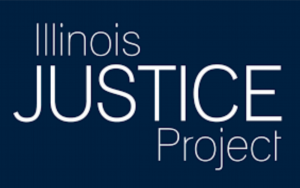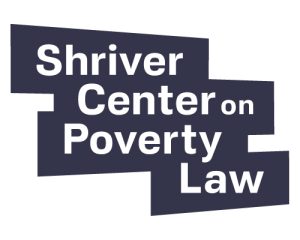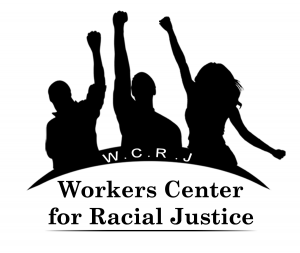ABOUT US
n 2016, a small group of base-building organizations, faith leaders, policy experts, service providers, lawyers, and abolitionist community organizers came together to demand Cook County end its unconstitutional use of money bond. Together, we launched a campaign to reduce pretrial jailing as the Coalition to End Money Bond and helped identify and support people in Cook County Jail suing the Cook County criminal court system to challenge their unaffordable money bonds. Eight years later, we have eliminated money bond statewide. While our work will continue, we will no longer be organizing under the Coalition to End Money Bond name.
In 2019, our Coalition formally expanded our work statewide and launched the Illinois Network for Pretrial Justice with new partner organizations from across the state. The Network’s more than 40 organizations are committed to reducing pretrial jailing and the harm caused by the pretrial legal system. The Coalition is honored to be part of the statewide movement that led the campaign to end money bond in Illinois with the passage of the Pretrial Fairness Act. Going forward, all of our work will take place under the banner of the Illinois Network for Pretrial Justice.
Over the last eight years, our Coalition has helped reduce the number of people passing through Cook County Jail by more than 10,000 people each year, reduced the number of people subjected to pretrial electronic monitoring while expanding their rights, and participated in the statewide campaign to make Illinois the first state in the country to completely end the use of money bond. Because of our collective work, tens of thousands of people have been able to avoid pretrial jailing in Cook County, and now millions of dollars that would have been extracted from our most marginalized communities are available for rent, food, and other essentials. Our work in Cook County has shown the country that it’s possible to dramatically reduce pretrial incarceration without a rise in missed court dates or new arrests while people are awaiting trial.
We deeply appreciate everyone whose work made this monumental effort possible, and we look forward to continuing to work together to further reduce pretrial jailing and electronic monitoring. We are honored to work with our partners across the state in the Illinois Network for Pretrial Justice to hold the courts, prosecutors, and elected officials accountable to the Pretrial Fairness Act’s promise and defend this historic legislation from rollbacks in the legislature.
WHO WE ARE
PRINCIPLES OF BOND REFORM
IN COOK COUNTY
The pretrial detention system in Cook County needs reform. Cook County Jail
incarcerates approximately 7,500 people per day. An additional 2,000 people are
under the Sheriff’s supervision through electronic monitoring. More than 90% of the
people detained are pretrial and thus presumed innocent—a considerably higher
rate than the national rate of 67%. Approximately two thirds of unconvicted people
incarcerated or on electronic monitoring in Cook County would be free if they could
afford to pay a monetary bond.
The overuse of pretrial incarceration and monitoring comes at tremendous personal
cost to impacted individuals and entire communities. Pretrial detention leads to lost
jobs, lost housing, and even lost custody of children. In addition, people detained
pretrial are more likely to be convicted. They also receive longer sentences
compared to people released pretrial with similar backgrounds and charges. African
Americans receive disproportionately high monetary bonds and are
disproportionately unable to pay these bonds. Seventy-three percent of the people
incarcerated in the Cook County Jail are African American despite the fact that
African Americans make up only 25% of Cook County’s population.
Recent history has shown that the population of Cook County Jail can be decreased
substantially with no impact on public safety or court appearance rates. The
following six principles provide guidance for reform efforts designed to reduce the
number of people incarcerated pretrial in Cook County Jail.
1. Access to money should not determine whether or not an accused person is
detained in jail or subject to other conditions pending trial.
2. Pretrial services programs should be used to promote court attendance and
provide needed services and not place unnecessary conditions on the
accused person.
3. Conditions of bail should not prevent an accused person from performing
basic personal responsibilities, impose direct or indirect economic costs, or
unduly expose the accused person to new criminal charges.
4. Pretrial detention and other restrictions on liberty should be used only as a
last resort to ensure community safety and the defendant’s appearance in
court.
5. Data on detention and release outcomes should be collected and made
available for public review and system assessment purposes. Risk
assessments, if used, must be validated, transparent, and their impact must
be tracked.
6. Administrative reforms should be made to ensure court practices conform to
the law. Judges should receive education and training consistent with
existing law and these principles.
incarcerates approximately 7,500 people per day. An additional 2,000 people are
under the Sheriff’s supervision through electronic monitoring. More than 90% of the
people detained are pretrial and thus presumed innocent—a considerably higher
rate than the national rate of 67%. Approximately two thirds of unconvicted people
incarcerated or on electronic monitoring in Cook County would be free if they could
afford to pay a monetary bond.
cost to impacted individuals and entire communities. Pretrial detention leads to lost
jobs, lost housing, and even lost custody of children. In addition, people detained
pretrial are more likely to be convicted. They also receive longer sentences
compared to people released pretrial with similar backgrounds and charges. African
Americans receive disproportionately high monetary bonds and are
disproportionately unable to pay these bonds. Seventy-three percent of the people
incarcerated in the Cook County Jail are African American despite the fact that
African Americans make up only 25% of Cook County’s population.
Recent history has shown that the population of Cook County Jail can be decreased
substantially with no impact on public safety or court appearance rates. The
following six principles provide guidance for reform efforts designed to reduce the
number of people incarcerated pretrial in Cook County Jail.
detained in jail or subject to other conditions pending trial.
provide needed services and not place unnecessary conditions on the
accused person.
basic personal responsibilities, impose direct or indirect economic costs, or
unduly expose the accused person to new criminal charges.
last resort to ensure community safety and the defendant’s appearance in
court.
available for public review and system assessment purposes. Risk
assessments, if used, must be validated, transparent, and their impact must
be tracked.
the law. Judges should receive education and training consistent with
existing law and these principles.












